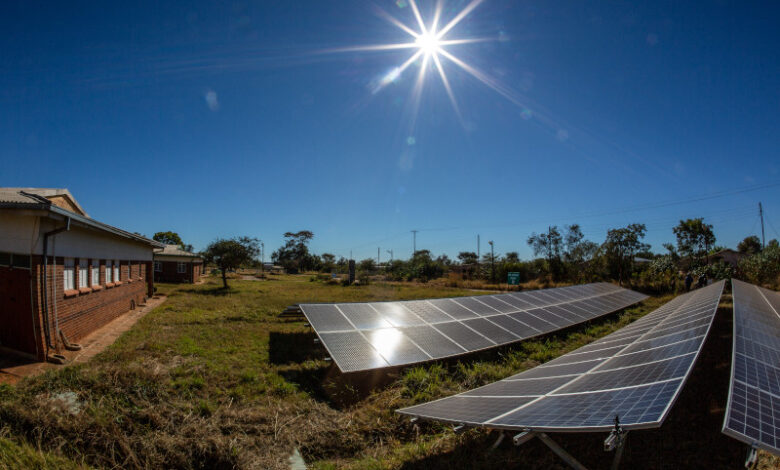Choosing the Right Solar Company: A Comprehensive Guide to Sustainable Energy Solutions

Introduction
As the world shifts toward sustainable energy sources, solar power has emerged as one of the most popular and accessible options for residential, commercial, and industrial use. Whether you’re considering installing solar panels for your home or business, selecting the right solar company is a critical step in ensuring a successful transition to clean energy.
The solar industry has grown rapidly over the past decade, resulting in a wide range of companies offering diverse products, services, and financing options. This growth has created a complex market where consumers need to navigate technical details, cost considerations, warranties, and more. This guide will provide you with essential information on how to evaluate and choose the best solar company to meet your energy needs, maximize your investment, and contribute to a greener future.
1. Understanding the Role of a Solar Company
A solar company typically handles the design, sale, installation, and maintenance of solar energy systems. Their responsibilities may include:
- Assessing your property’s solar potential
- Designing a system that meets your energy requirements
- Procuring quality solar panels and equipment
- Installing solar panels, inverters, and wiring
- Navigating local regulations and permits
- Providing ongoing maintenance and monitoring
- Assisting with financing, rebates, and tax credits
Choosing a company that offers comprehensive services can streamline the process and ensure accountability throughout your solar project.
2. Key Factors to Consider When Selecting a Solar Company
The right choice of a solar company depends on several critical factors that affect both the performance of your solar system and your overall satisfaction.
a. Experience and Reputation
Look for companies with a proven track record in the solar industry. Years of experience often correlate with reliability and quality workmanship. Check online reviews, ask for references, and review case studies or portfolios of past installations.
b. Certifications and Licenses
Ensure the company’s technicians are certified by recognized bodies such as the North American Board of Certified Energy Practitioners (NABCEP). The company should also hold all necessary licenses and insurance to operate legally and safely.
c. Product Quality
Ask about the brands of solar panels, inverters, and other components the company uses. High-quality, reputable brands generally offer better efficiency, durability, and warranty terms.
d. Customization and Design
Each property has unique energy needs and site conditions. A professional solar company will conduct a thorough site assessment and tailor a system design that maximizes solar output and efficiency.
e. Financing Options
Solar installation can be a significant investment. Look for companies that offer flexible financing solutions such as loans, leases, power purchase agreements (PPAs), or incentives and rebates assistance.
f. Warranty and Maintenance
A strong warranty protects your investment. Ensure the company offers warranties on both equipment and workmanship. Additionally, ask about maintenance services and system monitoring to keep your solar panels operating optimally.
3. The Solar Installation Process
Understanding the typical steps involved when working with a solar company will prepare you for what to expect.
a. Initial Consultation
The process begins with a consultation to assess your energy needs, budget, and goals. The company may review your electricity bills and discuss your preferences for system size and design.
b. Site Assessment
A technician conducts a detailed inspection of your property, including roof condition, shading analysis, and structural considerations. This data helps in designing an efficient system.
c. Proposal and Agreement
The company presents a customized proposal outlining system specifications, costs, timelines, and financing options. Once you approve the proposal, contracts are signed.
d. Permitting and Approvals
The company handles all necessary permits and coordinates with local authorities and utility companies to ensure compliance with regulations.
e. Installation
Qualified technicians install the solar panels, inverters, and electrical connections. Installation time varies but typically ranges from one to several days depending on the project size.
f. Inspection and Interconnection
Post-installation inspections are conducted to ensure safety and code compliance. The system is then connected to the grid, and your solar array begins generating electricity.
g. Monitoring and Maintenance
Many companies provide monitoring services via apps or web portals so you can track energy production. Regular maintenance, cleaning, and occasional repairs keep the system running efficiently.
4. Benefits of Working with a Professional Solar Company
Opting for a reputable solar company brings multiple advantages:
- Expertise: Professionals understand complex technical and regulatory requirements.
- Quality Assurance: Trusted companies source high-quality equipment and ensure proper installation.
- Cost Savings: Efficient design and installation reduce waste and maximize energy savings.
- Time Efficiency: Professionals manage all phases, reducing hassle and project delays.
- Peace of Mind: Warranties and service agreements provide long-term support.
5. Emerging Trends in the Solar Industry
The solar energy sector continues to evolve, offering more innovative and accessible solutions:
- Energy Storage Integration: Many companies now offer battery systems that store excess solar energy for use during cloudy days or nighttime.
- Smart Monitoring: Advanced monitoring systems provide real-time data and predictive maintenance alerts.
- Community Solar: Some companies facilitate shared solar projects for those who cannot install panels on their property.
- Sustainability Focus: Eco-friendly manufacturing processes and recyclable components are becoming standard.
Partnering with a forward-thinking solar company in Annapolis can help you take advantage of the latest technology and incentives.
6. Questions to Ask Before Hiring a Solar Company
Before making your final decision, consider asking potential providers these important questions:
- How many years have you been in the solar business?
- Can you provide references or testimonials from past clients?
- What brands of panels and inverters do you use, and why?
- What warranties do you offer on equipment and labor?
- How do you handle permits and inspections?
- What financing options are available?
- Do you offer system monitoring and maintenance services?
- How do you handle potential system performance issues?
Conclusion
Choosing the right solar company is crucial to the success and longevity of your solar energy system. By thoroughly researching providers, asking the right questions, and understanding the installation process, you can confidently invest in renewable energy that benefits both your wallet and the environment.
A reputable solar company not only installs panels but acts as a long-term partner in your clean energy journey—helping you optimize energy savings, navigate regulations, and maintain your system’s performance for years to come.




